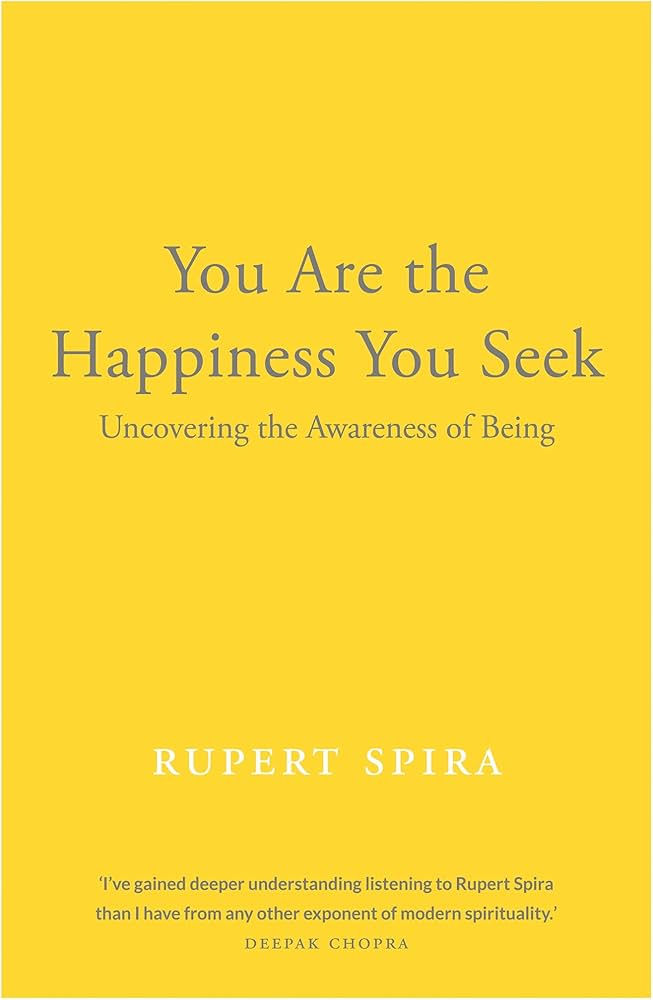 Rupert Spira’s teachings are rooted in Advaita Vedanta's concept of non-duality, a spiritual philosophy that emphasizes the oneness of all existence. The core of his teachings is the idea that the true nature of reality is awareness or consciousness, and that everything we experience arises from and is inseparable from this underlying awareness. His approach prescribes direct experience or what he refers to as the direct path.
Rupert Spira’s teachings are rooted in Advaita Vedanta's concept of non-duality, a spiritual philosophy that emphasizes the oneness of all existence. The core of his teachings is the idea that the true nature of reality is awareness or consciousness, and that everything we experience arises from and is inseparable from this underlying awareness. His approach prescribes direct experience or what he refers to as the direct path. Rupert Spira's "Direct Path" is a non-dual approach to understanding one's true nature, emphasizing direct experience over intellectual or conceptual understanding. Here's a brief outline of his teachings:
CORE PRINCIPLES
- Non-Duality: The belief that reality is a single, unified whole, and the sense of separation between self and the world is an illusion.
- Direct Experience: Instead of relying on beliefs or external authorities, Spira encourages individuals to explore their own experience to discover their true nature.
- Awareness as the Essence: He teaches that our true nature is pure awareness, which is ever-present and unchanging, regardless of the content of our experiences.
STEPS IN THE DIRECT PATH
1. Turning Attention Inward:
- Begin by questioning the nature of the self. Ask questions like, "Who am I?" or "What is the essence of my being?"
- Shift focus from external objects and experiences to the subject of experience—awareness itself.
2. Recognizing Awareness:
- Notice that awareness is always present, regardless of thoughts, emotions, or sensations.
- Understand that awareness is not an object but the constant background of all experiences.
3. Dissolving the Sense of Separation:
- Realize that the sense of being a separate self is a construct of the mind.
- See that all experiences arise within awareness and are not separate from it.
4. Integration into Daily Life:
- Apply this understanding to everyday situations, recognizing that all experiences are expressions of the same awareness.
- Cultivate a sense of peace and joy that comes from knowing one's true nature.
UNIQUE ASPECTS OF RUPERT SPIRA'S APPROACH
Non-Sectarian: His teachings are free from religious or cultural dogma, making them accessible to people from all backgrounds.
Practical and Experiential: Spira emphasizes practical exercises and meditations to help individuals directly experience their true nature.
Contemporary Relevance: His approach is tailored to modern life, addressing the challenges of a skeptical and scientifically oriented age.
KEY SOURCES OF RUPERT SPIRA'S TEACHINGS
Advaita Vedanta:
This is a non-dual philosophy that originated in ancient India, particularly through the teachings of the yogis, philosophers, and scholars Gaudapada, Govinda Bhagavatpada, and Adi Shankaracharya. Advaita Vedanta posits that the ultimate reality (referred to as Brahman) is indivisible and beyond all distinctions. The idea is that the individual self (or Atman) is not separate from this ultimate reality.
Rupert Spira often references Advaita Vedanta, especially in his exploration of the self, consciousness, and the nature of reality.
The Teachings of Ramana Maharshi:
Ramana Maharshi, a renowned Indian sage, is one of the key influences on Rupert Spira's teachings. Maharshi taught that the ultimate truth can be directly experienced through self-inquiry (the practice of asking "Who am I?") and by recognizing the unchanging nature of consciousness.
The Direct Path:
Rupert Spira teaches what he refers to as the Direct Path, a method for realizing non-duality and the nature of consciousness. This method emphasizes direct self-awareness and the immediate recognition that we are consciousness itself, not separate from it.
This approach was influenced by the teachings of Douglas Harding, whose book On Having No Head is a seminal work in the Direct Path. The essence of the Direct Path is to turn attention inward and directly recognize one's own nature as pure awareness.
The Influence of J. Krishnamurti:
Rupert Spira also draws inspiration from J. Krishnamurti, a spiritual teacher who emphasized the importance of self-awareness and direct perception without reliance on systems or authorities. Krishnamurti's teachings encourage individuals to observe their own thoughts and beliefs, shedding all psychological conditioning.
Western Contemplative Traditions:
While Rupert Spira's teachings are deeply rooted in Eastern traditions, he also incorporates insights from Western mysticism, particularly the works of Christian mystics such as Meister Eckhart and Saint John of the Cross. These figures, like the Eastern teachers, emphasized direct experience and the presence of a non-dual awareness that transcends the individual self.
Modern Advaita and Non-Dual Teachers:
Spira has studied and been influenced by many contemporary teachers of non-duality, such as Francis Lucille and Jean Klein. Their teachings emphasize the immediate recognition of our true nature and the nature of reality as awareness.
Central Concepts of Rupert Spira's Teachings:
Awareness is the foundation of experience: Everything we perceive arises in awareness, and awareness itself is prior to all thoughts, feelings, and experiences.
There is no separation: The idea of being a separate individual is an illusion; we are not separate from the world or from others.
Self-Inquiry: Like Ramana Maharshi, Rupert encourages self-inquiry to explore the nature of the self and to recognize that our true nature is pure awareness.
Non-duality: The world of duality (subject-object, self-other) is seen as an illusion or misperception. Ultimately, there is only the non-dual awareness in which everything appears.
Rupert Spira's teachings are an integration of these timeless spiritual traditions, communicated in a clear and accessible way for contemporary seekers of timeless wisdom. His focus is on guiding individuals to a direct recognition of their true nature through contemplation and inquiry.





